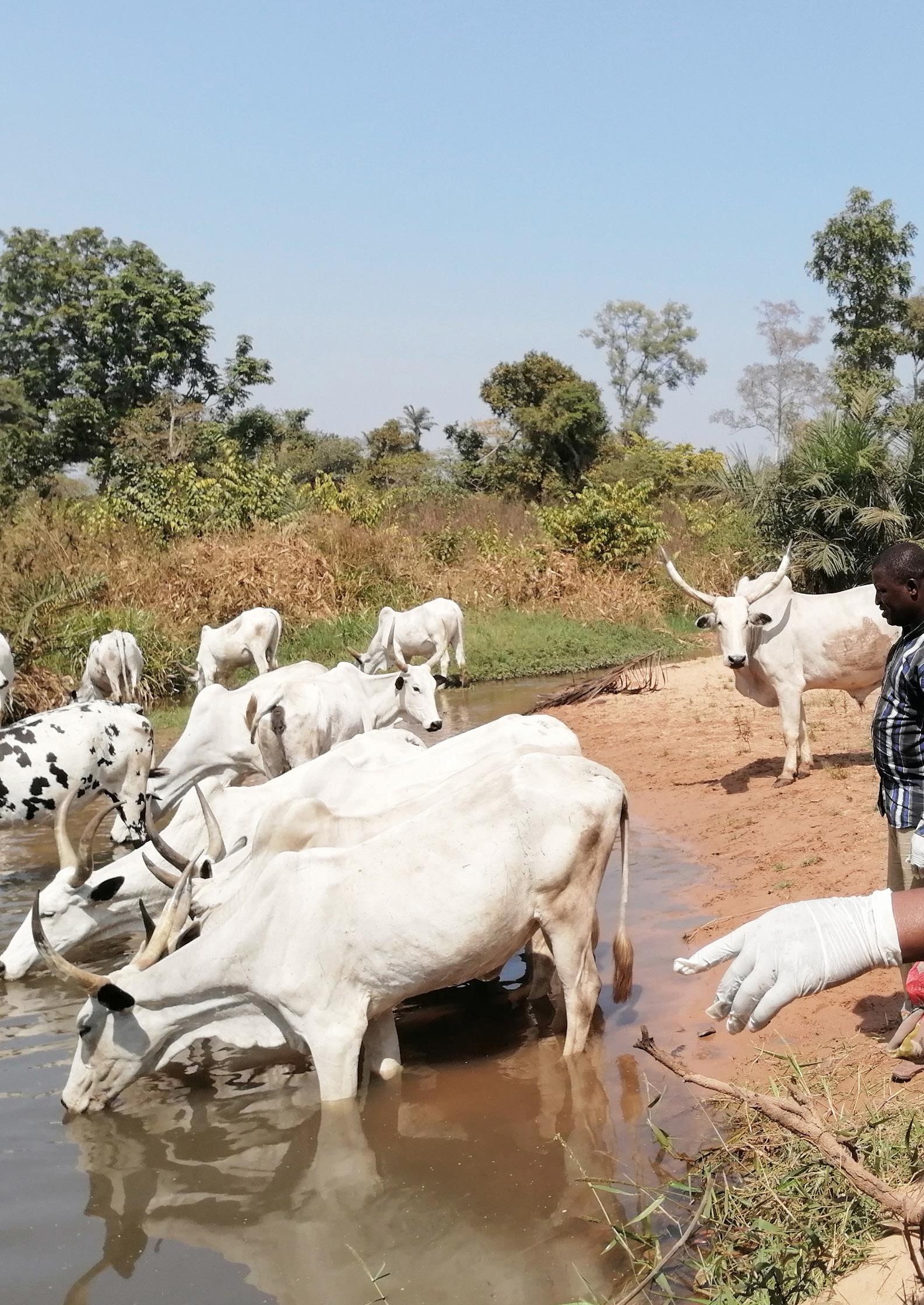Summary Looking Back and Ahead The year 2020 was one of transition from IFS’s previous Strategy 2011–2020 to the new Strategy 2021–2030. We began trying out new elements such as revised eligibility criteria, increased Basic Grant amounts, and a new Advanced Grant. Under the theme of Investing in Future Scientists, the Strategy 2021–2030: > Represents an evolution in our approach to enhancing research capacity > Focuses resources on supporting promising early career scientists (no longer defined by age) > Reflects changes in the contemporary context, and > Provides a foundation for IFS to move into its next chapter. For this strategic transition year of 2020, we are also changing the way we report on our work so that the impact of how grantees’ research is put into use is at the forefront, followed by our capacity-enhancing support activities and grants provision. Impact: Putting Grantee Research into Use We supported and followed up with the 112 grantees of 2016 who were finishing their research. We have chosen 13 impactful projects from 2016 to highlight how grantees’ research is being put into use, representative of topics, countries, regions, women and men. These scientists have so far published 43 articles in peer-reviewed scientific journals, and they have established 336 national and international scientific contacts. Through a selection of research results and achievements of grantees, IFS has documented evidence of numerous impacts from its support for the research of early career scientists. IFS grantees are putting their research into use in immediate, nearterm and long-lasting ways, in villages, forests, fields, policy discussions, government practices and the global scientific community. For example, in Ghana, data generated from one project’s microbiological assessments were considered for the revision of a national standard on food sampling. From another grantee’s project in Pakistan, more than 20 lines of wheat cultivars with desired agronomic features were selected to be used in a breeding programme. Capacity-enhancing Support In 2020, IFS was jointly engaged with a variety of strategic partners across a spectrum of topics, including communication to a non-scientific audience, COVID, food security, freshwater tenure rights, “soft skills” for scientists, water and agricultural systems, and women in science. These 13 activities took place virtually. 1. Southeast Asian Regional Center for Graduate Study and Research in Agriculture. 6 *** IFS ANNUAL REPORT 2020
We provided mentoring support to the ongoing research projects of 433 grantees, along with those finishing up 72 individual and 40 collaborative grants from 2016. We also supported our alumni to associate and support other potential grantees through training and coaching. In particular, a webinar series was launched to strengthen the science capacity of early career researchers in Africa in the post-COVID world, and an introductory meeting was arranged with new women grantees. Grants In 2020 we attracted a record-high 2,112 completed applications for individual research grants. Out of the total proposed projects, 168 grants were approved for funding, with 116 applicants awarded the grant (including 12 Renewal Grants and 52 pending due to lack of funds). Of those awarded, 45% dealt with biological resources in terrestrial systems, 20% with water and aquatic resources, and 35% with food security, dietary diversity and healthy livelihoods. The IFS Secretariat also processed 47 purchase orders for laboratory equipment and materials. Women scientists represented 40% of the individual research grant awardees and men were 60%. In addition to the early career scientists receiving research grants, the other 1,498 applicants were given feedback by well-qualified IFS reviewers and advisors as part of our capacity-enhancing support. It was not planned to implement the new Advanced Grant scheme this year, but rather to prepare for it through the development of an application form and guidelines for applicants and reviewers. However, we did not miss the opportunity to pilot the Advanced Grant through a collaboration with Philippines-based SEARCA1 on a response to the COVID pandemic with a Call for Research on Accelerating Transformation through Agricultural Innovation in Southeast Asia. IFS’s COVID Response In response to the COVID pandemic, IFS also acted immediately by taking measures to ensure the well-being of our staff, and by contacting grantees to renegotiate expectations and deliverables for around 500 ongoing projects. We also drafted a discussion note so that the IFS Executive Committee, Board and Secretariat can explore the implications – with our funders and strategic partners – for IFS’s programming over the next few years. The note is meant to spark discussion, further develop the concepts, and result in a set of follow-up actions for IFS as it both continues with its regular programme and also responds to COVID.









